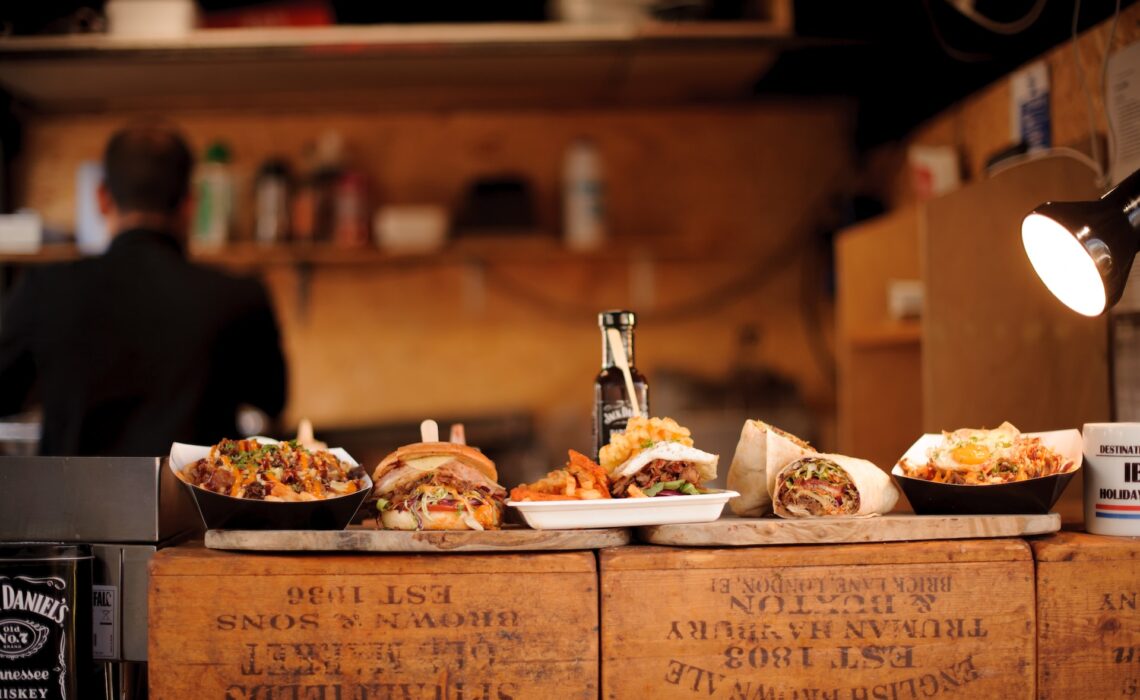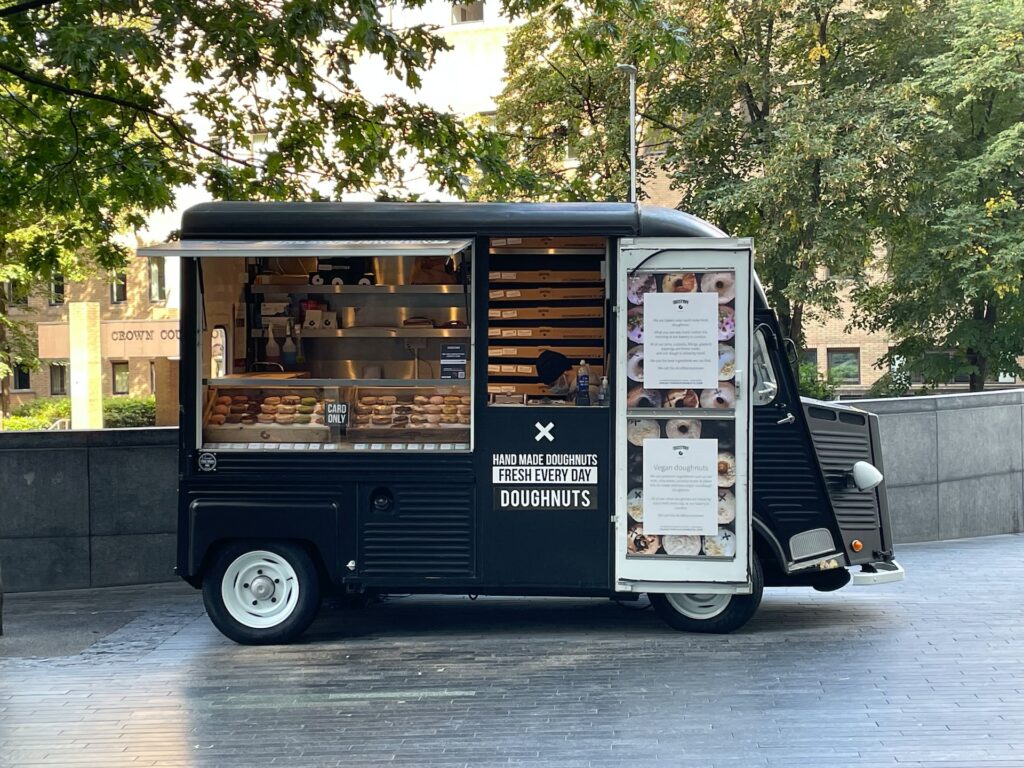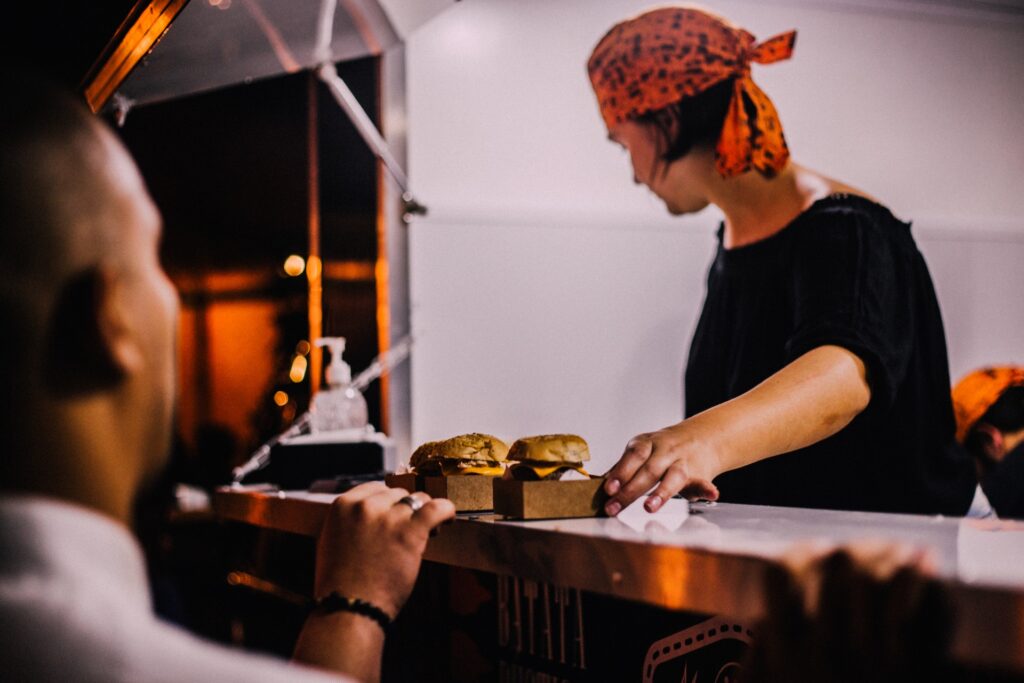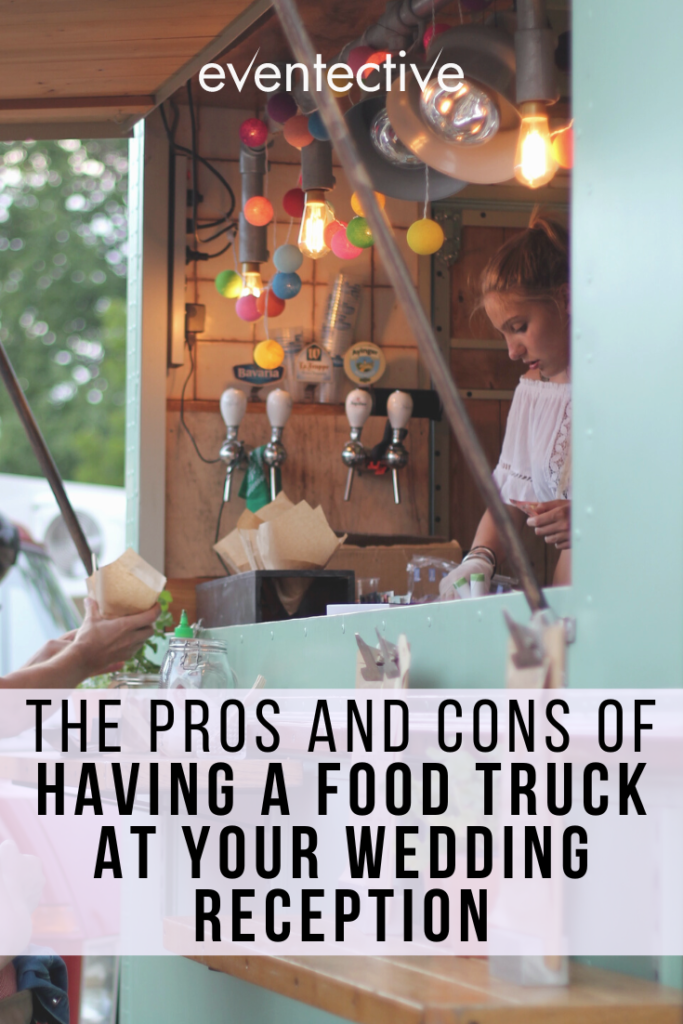
Wedding receptions have transformed significantly over the past several decades. Once relegated primarily to banquet halls, reception-specific venues, and hotel ballrooms, the emphasis placed on the experience of the wedding guest has transformed considerably, and with it, the importance of selecting the right venue for your post ceremony bash. With more couples opting for unique reception locales, like barns, bed & breakfasts, gardens, and wineries, the importance of selecting the right vendors to match the wedding aesthetic can’t be overstated. And a big part of that guest experience comes down to catering. Gone are the days of simply checking off chicken or fish. Now, engaged couples have a choice of plated dinners, food stations, buffet-style, family-style, cocktail receptions, and one of the fastest growing trends in the industry: food trucks at your wedding.
Food at weddings often gets a bad rap—dried-out chicken breast, watery sauces, and uninspired vegetarian options come to mind. But as culinary scenes across the country evolve at a rapid pace, it’s only natural that the wedding industry has been quick to follow. One major source of innovation in the food world has been the rise of food trucks, and thanks to their popularity, food trucks have been an increasingly common sight at weddings and parties.
Whether they’re serving refreshments during the cocktail hour, scooping ice cream for dessert, or taking care of each meal from start to finish, food trucks are a great way to add a fun and exciting personal touch to your wedding. They can even be cost-effective. But before you go all in on a food truck reception, it’s important to consider the pros and cons.
Are food trucks cost-effective for weddings?

At first blush, hiring a food truck for your wedding sounds like a cost-effective way of getting drinks in hand and food on plates for the cocktail hour and wedding reception. And while cost per plate does tend to be considerably lower—traditional catering often rings in around $100 per head while food trucks average $15-$20—there are some other considerations to keep in mind before you hire that hot new food truck you’ve been hearing about.
Engaged couples should keep in mind that there’s a big difference between hiring a food truck and hiring a caterer, in the same way that there is a big difference between holding a wedding in your backyard vs. working with a wedding-specific venue. When you hire a caterer, that higher cost-per-plate typically includes the hidden costs of working an event, including staffing, plate and flatware rental (and often linens, too), providing water and other beverages for guests, table clearing, and more. When you hire a food truck, you’re paying for the presence of the truck and the food (and sometimes, what the food is served on). Couples will then need to hire additional vendors to fill in the rest. Depending on the size of the wedding, these vendors could include servers and bartenders, staff to bus tables and clear empty plates, and people to pour water.
If you’re considering hiring a food truck for your wedding, you’ll also want to think about the wait time for food. Caterers have the benefit of producing large quantities of food at the same time,which servers then bring to guests. Food trucks have more limitations and are often capped at 100-150 guests.
What do I need to know about hiring a food truck for my wedding?

If you’ve chosen to hire a food truck for your wedding, you’ll want to do your homework before landing on your final choice. Just as you would interview several caterers, you’ll want to speak to a variety of food truck owners to learn what they can and can’t accommodate. Some questions to ask before hiring a food truck for your wedding:
- What kind of insurance do you have? Most vendors have event insurance, but if a food truck doesn’t often work events, you may end up footing the bill should something go awry.
- How many guests can you serve? Be sure to ask each truck how many guests they can accommodate and how they handle timing.
- What about rain? As you interview food trucks, you’ll want to discuss a contingency plan in the event of rain.
- Where will you park the food truck? You’ll need to ask about accessibility and the amount of space the truck needs to operate.
- Do you need special permitting? Some cities and towns require special permits for food trucks. Check with your city or town hall to find out if you’ll need one.
What kind of wedding are food trucks good for?

While food trucks have their limitations, they can still be a fun addition to any wedding, whether they’re the main source of food or providing refreshments for a portion of the day. For smaller, more casual weddings (think under 100 people, and ideally well under that number), a food truck could be a great way to add a personal touch, bearing in mind you’ll likely need to hire additional vendors. For larger weddings, you could consider hiring a food truck for a portion of the reception, like happy hour, coffee, dessert, or a late-night snack, and working with a caterer for the sit-down portion of the meal.
Would you have a food truck at your wedding?

